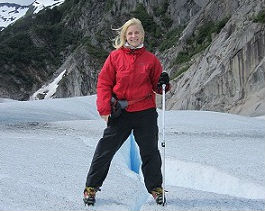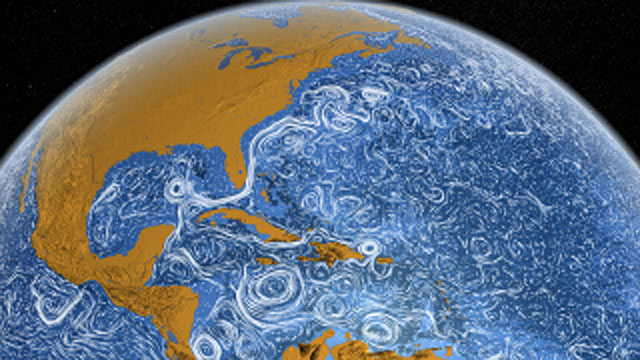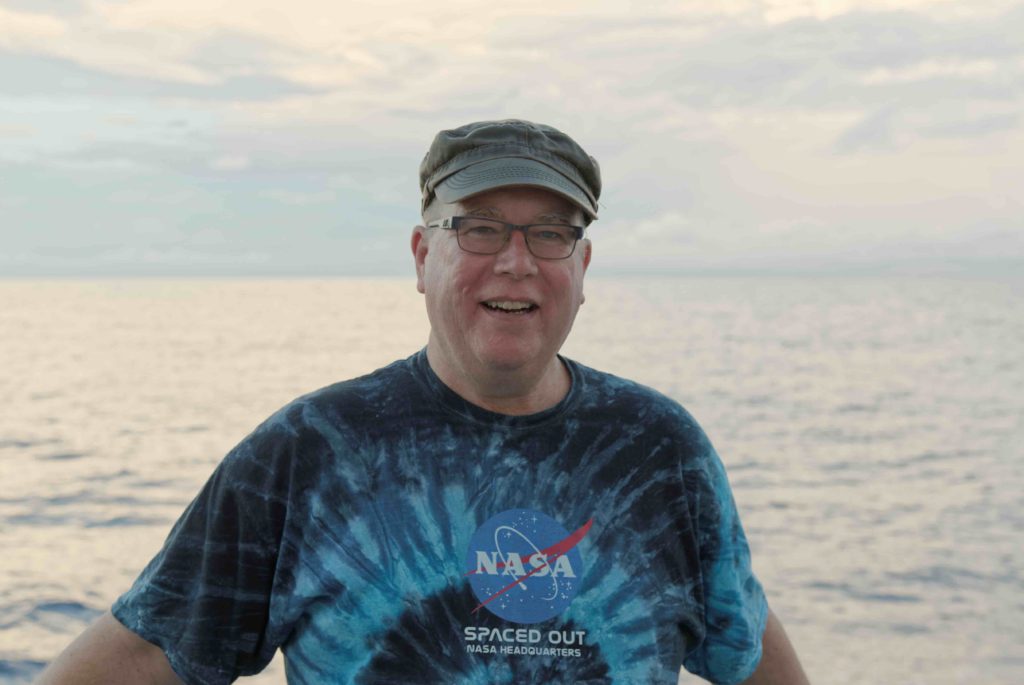STEM Career Connections
Meet Michelle Gierach, Ocean Scientist

Job Title
project scientist/ocean scientist
Michelle Gierach
Work Description
Michelle Gierach serves as a project scientist for the Physical Oceanography Distributed Data Archive Center (PO.DAAC) and ocean scientist at NASA Jet Propulsion Laboratory (JPL).
Bio
Where do you work and do you remember what it was like on your first day of work?
I work at NASA’s Jet Propulsion Laboratory (JPL). I was a slew of emotions on my first day, being thrilled and anxious at the same time. I was honored to have been given a position at JPL since they and NASA are known world-wide for their scientific endeavors; however, at the same time I was worried that my scientific interests and research would not stack up to their level of excellence. This latter sentiment has since faded and has been replaced by a sense to succeed as a representative of NASA and JPL.
How did you discover your passion for Earth Science?
I grew up in Florida and witnessed first hand the destruction caused by hurricanes. My grandmother went through Hurricane Andrew in 1992 when it made landfall in Homestead, Florida as a category 5 hurricane. Seeing the destruction caused by the natural phenomenon intrigued me. How it is possible that a natural event can propel 2×4’s through a palm tree? From that point, I knew I wanted to be an earth scientist.
What do you enjoy most about what you do?
I get to explore the earth system and my own curiosity through satellites. Satellites provide us with a global view of what is happening in our earth system at present and give us an indication of how the system has changed over time. One of the most rewarding aspects of my job is the education and outreach component, wherein I get to communicate science results from satellites to the public. It is our responsibility as scientists to convey what we have learned, how it is relevant to society, and why it is important to continue the satellite record.
What are some of the most important lessons you have learned in your life?
To not doubt your abilities and rise to the challenge when presented with opportunities that offer a chance to learn something new. To be true to yourself and your scientific beliefs.
What was the most difficult moment of your career? What did you learn?
One of the biggest challenges I have faced is public disbelief in science results from the satellite record. Satellites provide a global view of the earth system and we have been fortunate to have long-term monitoring through the continuation of the satellite record. Skepticism of satellite results is upsetting, but makes me steadfast in my scientific convictions and further emphasizes the necessity to communicate with the public.
Who has been the biggest influence on your life, and what lessons did they teach you?
There is no one person that influenced my life, more so it has been an accumulation of people throughout my life from my family, grade school teachers, college professors, and work colleagues. Along the way, each has taught me to be true to my abilities and myself and not cower to new challenges and opportunities.
Did you have to overcome any gender barriers in your career?
I do not feel I have had to overcome gender barriers as my career has developed. Though that is not to say that they do not exist. The science profession has primarily been a male-dominated field; however, amazing women have been paving the way for female junior scientists like myself. We now have programs that encourage and mentor young women in science to increase retention, such as MPOWIR (Mentoring Physical Oceanography Women to Increase Retention). Progress is being made, but we still have a ways to go.
What one piece of advice would you like to pass on to the next generation?
Never stop asking questions and exploring your own curiosity.



